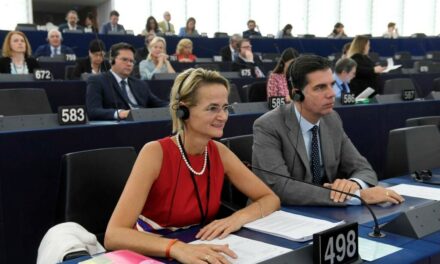Anyone who writes in a Facebook post that they are going to commit murder, and several people learn about it, commits the crime of preparation for murder, for which a severe penalty can be imposed.
"It is considered preparation for murder if someone makes a death threat in a text message or writes in a Facebook post that they are planning a murder and others in their environment find out about it," pointed out the scientific director of the Századvég Institute. Zoltán Lomnici Jr. added that up to five years in prison can be imposed for this.
After the assassination of Donald Trump, a left-wing group in Hungary started a poll on when the Hungarian Prime Minister would be shot.
Máté Kocsis drew attention to the vote and its initiator on his social media page. The scientific director of Századvég pointed out in relation to online defamation: the Court's criminal law unitary decision recorded,
in order to be convicted under criminal law, it is not necessary for the person sending the message to be commissioned by someone else to commit the act.
"It is also sufficient if the person concerned decides to share his intention with others," he pointed out, then added: based on the decision, the perpetrator is equally responsible if he acted with encouragement or if he threatened on his own initiative.
He emphasized: in general, those who have reached the age of 14 at the time of the offense can be held responsible.
The age limit for manslaughter is 12 years, but at the same time, it must be examined whether the potential perpetrator realized the consequences of his behavior, explained the director.
Zoltán Lomnici Jr. believes that this legal approach is of particular importance from the point of view of crime prevention, because the prevention of crimes is of the utmost importance even in the case of death threats.
According to him, although public opinion is often more permissive in relation to internet platforms, such as social media and online media, and those who make statements - in response to criticism leveled against them - refer to freedom of speech and the press, in fact the same applies to them in this regard as expressing an opinion in a public space to the declaring person.
United States Supreme Court Justice Anthony Kennedy in Packingham v. In the North Carolina case, he called the Internet a modern public space, the constitutional lawyer reminded.
Zoltán Lomnici Jr. recalled that one of the outstanding developments in recent years in this regard was the decision of the Constitutional Court in the spring of 2014, which states, among other things, that responsibility for comments on websites is independent of whether the comments on the website are moderated or unmoderated, and in both cases the operator of the website responsible for the content of the post.
"The Internet is not a law-free area either," the Constitutional Court statement on the decision said at the time, with which the body indicated that, regardless of the method of communication, responsibility must be assumed in certain cases.
Cover image: The Internet is not a law-free area
Source: Pixabay.com













